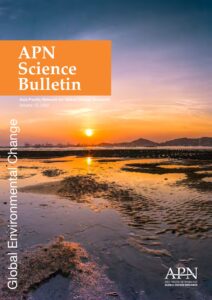
Climate change (23) · Southeast Asia (9) · Capacity building (8) · Adaptation (7) · Climate change adaptation (7) · Loss and damage (5) · Vulnerability (4) · Resilience (4) · Food security (4) · Agriculture (3) · Disaster risk reduction (3) · Adaptive capacity (3) · Bangkok (3) · Community (3) · Developing countries (3) · Asia (3) · Sustainable development (3) · Climate-smart agriculture (3) · Indigenous knowledge (2) · Mitigation (2) · Climate (2) · Disaster risk management (2) · CORDEX (2) · Impact and Adaptation (2) · Indicator-based methodology (2) · Water security assessment (2) · Water security index (2) · Groundwater (2) · Bandung (2) · Disaster resilience (2) · Temperature (2) · India (2) · Mangrove (2) · Participatory (2) · Greenhouse gas emissions (2) · Sustainable Development Goals (2) · Disasters (2) · Indonesia (2) · Civic Engagement (2) · Transformative Learning (2) · Sustainability (2) · Sustainable forest management (2) · Smallholder farmers (2) · Agroforestry (2) · Ecosystem services (2) · Precipitation (2) · Capacity development (2) · Community resilience · Assessment · Asia-Pacific least developed countries · Marine and coastal zone management · Global environmental change · Climate extremes · Carbon flux · Human activity · Red River · Seneque · Riverstrahler · Coastal forest management · Disaster · Data recovery · Historic weather · Reanalyses · Dynamical reconstructions · Urban resilience · Assessment framework · Mixed-methods approach · Structured interview matrix · International Conference on Regional Climate · Added Value · Risk insurance · Costs · Benefits · Himalaya · IAP Toolkit · Basin-scale analysis · DPSIR framework · Green growth · Ecological modernization · Environmental Kuznets Curve